 W
W"201" is the sixth episode of the fourteenth season of South Park, and the 201st overall episode of the series. It originally aired on Comedy Central in the United States on April 21, 2010. The episode continued multiple storylines from the previous episode, "200", in which a group of angry celebrities demand South Park produce the prophet Muhammad. In "201", a superhero-like group of religious figures team up to save South Park from the celebrities and their monster Mecha-Streisand, while Eric Cartman learns the true identity of his father.
 W
WAdresseavisen is a regional newspaper published daily, except Sundays, in Trondheim, Norway. The paper has been in circulation since 1767 and is one of the oldest newspapers after Norske Intelligenz-Seddeler which was launched in 1763.
 W
Waha is an Indian subscription video on-demand and over-the-top streaming service which offers Telugu-language content. It is owned by Arha Media & Broadcasting Private Limited, a joint venture by Geetha Arts and My Home Group. The service was soft launched on 25 January 2020 and launched officially on 25 March 2020, coinciding with Telugu New Year (Ugadi).
 W
WPatricia Tiffany Arquette is an American actress. She has been the recipient of numerous accolades, including an Academy Award, a British Academy Film Award, two Primetime Emmy Awards, three Golden Globe Awards, and two Screen Actors Guild Awards.
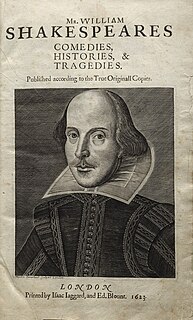 W
WArtistic merit is the artistic quality or value of any given work of art, music, film, literature, sculpture or painting.
 W
WIn radio and television, broadcast delay is an intentional delay when broadcasting live material, technically referred to as a deferred live. Such a delay may be to prevent mistakes or unacceptable content from being broadcast. Longer delays lasting several hours can also be introduced so that the material is aired at a later scheduled time to maximize viewership. Tape delays lasting several hours can also be edited down to remove filler material or to trim a broadcast to the network's desired run time for a broadcast slot, but this is not always the case.
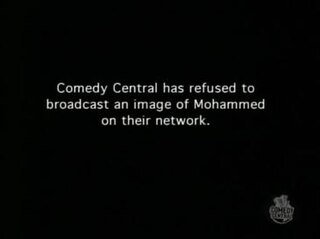 W
W"Cartoon Wars Part II" is the fourth episode in the tenth season of the American animated television series South Park. The 143rd episode of the series overall, it first aired on Comedy Central in the United States on April 12, 2006. Following "Cartoon Wars Part I", it is the second part of a two-episode story-arc, which focuses on Cartman's efforts to get the television series Family Guy cancelled by exploiting fears of retaliation by Muslims to an upcoming Family Guy episode in which the Islamic prophet Muhammad will appear, in violation of some interpretations of Muslim law. Kyle instead urges the president of Fox, the network airing Family Guy, to air the episode in an exercise of free speech.
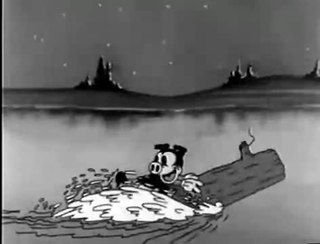 W
WThe Censored Eleven is a group of Looney Tunes and Merrie Melodies cartoons originally produced and released by Warner Bros. that were withheld from syndication in the United States by United Artists (UA) in 1968. UA owned the distribution rights to the Associated Artists Productions library at that time and decided to pull these eleven cartoons from broadcast because the use of ethnic stereotypes in the cartoons, specifically African stereotypes, was deemed too offensive for contemporary audiences. The ban has been continued by UA and the successive owners of the pre-August 1948 Looney Tunes/Merrie Melodies. These shorts have not been officially broadcast on television since 1968 and have only been exhibited once theatrically by Warner Bros. in Spring 2010 since their withdrawal. They have turned up, however, on low-cost VHS and DVD collections over the last thirty years.
 W
WA Clockwork Orange is a 1971 dystopian crime film adapted, produced, and directed by Stanley Kubrick, based on Anthony Burgess's 1962 novel of the same name. It employs disturbing, violent images to comment on psychiatry, juvenile delinquency, youth gangs, and other social, political, and economic subjects in a dystopian near-future Britain.
 W
WClownhouse is a 1989 American slasher film written and directed by Victor Salva in his feature-length directorial debut. It stars Nathan Forrest Winters, Brian McHugh, and Sam Rockwell as three young brothers stalked by escaped mental patients disguised as clowns, portrayed by Michael Jerome West, Bryan Weible, and David C. Reinecker. Clownhouse marks the second collaboration for Salva with Winters and McHugh, who previously appeared in his short film Something in the Basement (1986), and Rockwell's first film appearance.
 W
WCock is a 2009 play by Mike Bartlett. It premiered at the Royal Court Theatre in London in November 2009 and centres around John, a gay man who feels torn after meeting and falling in love with a woman.
 W
W"Dark Horse" is a song by American singer Katy Perry featuring rapper Juicy J. It was originally released on September 17, 2013, by Capitol Records as the first promotional single from Perry's fourth studio album, Prism (2013). Three months later, it was released as the third official single on December 17. Both artists co-wrote the song with its producers, Max Martin, Cirkut, and Dr. Luke, alongside Sarah Hudson. It was conceived by Perry and Hudson during a writing session in Perry's hometown of Santa Barbara, California, and Juicy J was later commissioned for a verse on the song.
 W
WDeranged is a 1974 psychological horror film directed by Alan Ormsby and Jeff Gillen, and starring Roberts Blossom. Its plot, loosely based on the crimes of Ed Gein, follows Ezra Cobb, a middle-aged man in a rural Midwestern community who begins a string of serial murders and grave robberies after the death of his mother, a religious fanatic who raised him to be a misogynist. Though based on Gein, the film's title is misleading since Gein never experimented with necrophilia; although a necrophile is also defined as "an obsessive fascination with death and corpses."
 W
W"Do What U Want" is a song by American singer Lady Gaga, featuring guest vocals from R. Kelly. The song was released on October 21, 2013 as the second single from Gaga's third studio album Artpop (2013). The singers wrote the song with DJ White Shadow, Martin Bresso, and William Grigahcine. DJ White Shadow first presented Gaga with the song's initial concept two years prior to its release. Production on "Do What U Want" was completed in 2013, with Kelly's vocals added soon after. Its sudden popularity upon premiering led to the song becoming the album's second single.
 W
WThe Dukes of Hazzard is an American action-comedy television series that was aired on CBS from January 26, 1979, to February 8, 1985. The show aired for 147 episodes spanning seven seasons. It was consistently among the top-rated television series in the late 1970s. The show is about two young male cousins, Bo and Luke Duke, who live in rural Georgia and are on probation for moonshine-running. The young men and their friends and their female cousin Daisy Duke, and other family, have various escapades as they evade the corrupt law officers Boss Hogg and Sheriff Rosco P. Coltrane. The young men drive a customized 1969 Dodge Charger nicknamed the General Lee, which became a symbol of the show.
 W
WDVD region codes are a digital rights management technique introduced in 1997. It is designed to allow rights holders to control the international distribution of a DVD release, including its content, release date, and price, all according to the appropriate region.
 W
WA euphemism is an innocuous word or expression used in place of one that may be found offensive or suggest something unpleasant. Some euphemisms are intended to amuse, while others use bland, inoffensive terms for concepts that the user wishes to downplay. Euphemisms may be used to mask profanity or refer to taboo topics such as disability, sex, excretion, or death in a polite way.
 W
WFantasia is a 1940 American animated film produced and released by Walt Disney Productions, with story direction by Joe Grant and Dick Huemer and production supervision by Walt Disney and Ben Sharpsteen. The third Disney animated feature film, it consists of eight animated segments set to pieces of classical music conducted by Leopold Stokowski, seven of which are performed by the Philadelphia Orchestra. Music critic and composer Deems Taylor acts as the film's Master of Ceremonies who introduces each segment in live action.
 W
WThe expression "fig leaf" is widely used figuratively to convey the covering up of an act or an object that is embarrassing or distasteful with something of innocuous appearance, a metaphorical reference to the Biblical Book of Genesis in which Adam and Eve used fig leaves to cover their nudity after eating the forbidden fruit from the tree of the knowledge of good and evil. Some paintings and statues have the genitals of their subjects covered by a representation of an actual fig leaf or similar object, either as part of the work or added afterward for perceived modesty.
 W
WFlorence v. Shurtleff, Civil No. 2:05CV000485, was a case in which the U.S. District Court for the District of Utah issued an order stating that individuals could not be prosecuted for posting adult content that was constitutionally protected on general access websites, nor could they be civilly liable for failing to prevent access to adult content, so long as the material is identifiable by filtering software. The order was the result of a 2005 lawsuit, The King’s English v. Shurtleff, brought by Utah bookstores, artists, Internet Service Providers and the other organizations challenging the constitutionality of certain portions of a Utah Law intended to protect minors from adult content.
 W
WFogging, also known as blurring, is used for censorship or privacy. A visual area of a picture or movie is blurred to obscure it from sight. This form of censorship is used for sexually related images/scenes, hiding genitals, pubic hair, or sexual penetration of any sort. Pixelization is a form of fogging. In Japan, where it is called bokashi, fogging is employed on most films aired on public television that feature adult content of any kind.
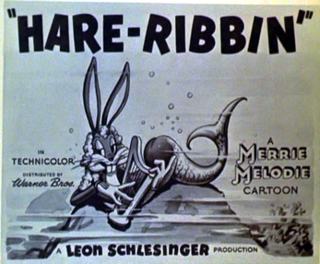 W
WHare Ribbin' is a 1944 animated short film in the Merrie Melodies series, directed by Robert Clampett and featuring Bugs Bunny. The plot features Bugs' conflict with a red-haired hound dog, whom the rabbit sets out to evade and make a fool of using one-liners, reverse psychology, disguises and other tricks. It was released in theaters by Warner Bros. on June 24, 1944. The title is a pun on "hair ribbon".
 W
WHot Coffee is a normally inaccessible minigame in the 2004 video game Grand Theft Auto: San Andreas, developed by Rockstar North. The minigame allows players, as protagonist Carl "CJ" Johnson, to have animated sexual intercourse with an in-game girlfriend of their choosing.
 W
WHotstar is an Indian brand of subscription video on-demand over-the-top streaming service owned by Star India and operated by Disney Media and Entertainment Distribution, both a division of The Walt Disney Company.
 W
WThe Interview is a 2014 American political action black comedy film co-produced and directed by Seth Rogen and Evan Goldberg in their second directorial work, following This Is the End (2013). The screenplay was written by Dan Sterling, based on a story he co-wrote with Rogen and Goldberg. The film stars Rogen and James Franco as journalists who set up an interview with North Korean leader Kim Jong-un, and are then recruited by the CIA to assassinate him. The film is inspired by a 2012 Vice documentary.
 W
WJeepers Creepers 3 is a 2017 American horror film written and directed by Victor Salva and the third film in the Jeepers Creepers film series, taking place in between Jeepers Creepers and Jeepers Creepers 2. Jonathan Breck reprises his role as The Creeper. Gina Philips returns in a cameo as Trish Jenner, her first return to the series since the original film. The film was shown in theaters on September 26, 2017 in what was originally announced as a one-night-only showing and was then shown again on October 4, 2017.
This article lists times that items were renamed due to political motivations. Such renamings have generally occurred during conflicts; for example, World War I gave rise to anti-German sentiment among Allied nations, leading to disassociation with German names.
 W
WRecently, My Sister Is Unusual (最近、妹のようすがちょっとおかしいんだが) is an anime television series written by Hideyuki Kurata and directed by Hiroyuki Hata. The story follows Mitsuki Kanzaki who comes to have a stepbrother named Yūya. One day Mitsuki is possessed by an angel who calls herself Hiyori who in life had deep feelings towards Yūya. She places a chastity belt on Mitsuki and tells her in order for her to cross over into heaven her final wish to be closer to Yūya must be fulfilled or else both of them will die and go to hell. Mitsuki reluctantly agrees and soon finds herself torn by her feelings for Yūya.
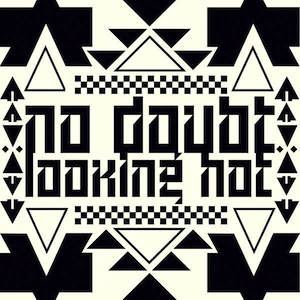 W
W"Looking Hot" is a song by American rock band No Doubt, released as the second and final single from their sixth studio album, Push and Shove. It was written by Gwen Stefani, Tony Kanal and Tom Dumont, and produced by Mark "Spike" Stent. The single became No Doubt's least successful single, charting at number 397 in the UK Singles Chart.
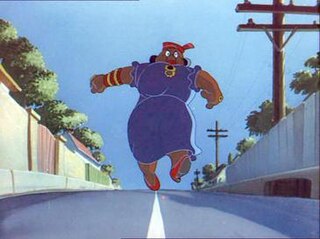 W
WMammy Two Shoes is a fictional character in MGM's Tom and Jerry cartoons. She is a heavy-set middle-aged African American woman who takes care of the house in which Tom and Jerry reside. Whether she is a housemaid or the owner of the house is never made clear. She would scold and attack Tom whenever she believed he was misbehaving; Jerry would sometimes be the cause of Tom's getting in trouble.
 W
WThe Mask of Fu Manchu is a 1932 American pre-Code adventure film directed by Charles Brabin. It was written by Irene Kuhn, Edgar Allan Woolf and John Willard based on the 1932 novel of the same name by Sax Rohmer. Starring Boris Karloff as Fu Manchu, and featuring Myrna Loy as his depraved daughter, the film revolves around Fu Manchu's quest for the golden sword and mask of Genghis Khan. Lewis Stone plays his nemesis. Dr. Petrie is absent from this film.
 W
W"Misery Business" is a song by American rock band Paramore and serves as the lead single from their second studio album, Riot! (2007). The song impacted radio on May 22, 2007. "Misery Business" peaked on the Billboard Hot 100 at No. 26, making it the band's highest-charting single until "Ain't It Fun" reached No. 10 in 2014. It also peaked at No. 3 on the Hot Modern Rock Tracks chart. "Misery Business" was the group's first charting single in the UK with more than 20,000 copies created within less than a year of the song's debut. It also succeeded in many countries including Mexico, Argentina, Chile, and Brazil. The song is considered the band's "breakthrough" hit and is credited with introducing the band to a mainstream audience. The video for "Misery Business" was the third to be directed by Shane Drake for the band, and Alternative Press named "Misery Business" the Video of the Year in 2007.
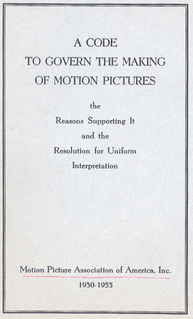 W
WThe Motion Picture Production Code was a set of industry guidelines for the self-censorship of content that was applied to most United States motion pictures released by major studios from 1934 to 1968. It is also popularly known as the Hays Code, after Will H. Hays, who was the president of the Motion Picture Producers and Distributors of America (MPPDA) from 1922 to 1945. Under Hays's leadership, the MPPDA, later known as the Motion Picture Association of America (MPAA) and now simply the Motion Picture Association (MPA), adopted the Production Code in 1930 and began rigidly enforcing it in mid-1934. The Production Code spelled out what was acceptable and unacceptable content for motion pictures produced for a public audience in the United States.
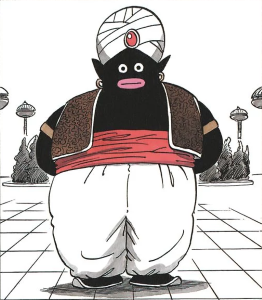 W
WMr. Popo is a fictional character from the Dragon Ball manga series created by Akira Toriyama. Within the series, he is a genie who serves as the assistant to Earth's guardian deity and the caretaker of their residence located high above the sky. He first appears in the one hundred sixty-third chapter of the Dragon Ball manga, published in 1988. In the Japanese anime adaptations, his seiyū was Toku Nishio, before Kawazu Yasuhiko took over the role for Dragon Ball Kai. For English language media, he was voiced by Chris Cason from 1997 to 1998. The character is voiced by Christopher Sabat for all media post-2000.
 W
WThe Parental Advisory label is a warning label introduced by the Recording Industry Association of America (RIAA) in 1985 and adopted by the British Phonographic Industry (BPI) in 2011. It is placed on audio recordings in recognition of profanity or inappropriate references, with the intention of alerting parents of material potentially unsuitable for children. The label was first affixed on physical 33 1/3 rpm records, compact discs and cassette tapes, and it has been included on digital listings offered by online music stores.
 W
W"Partial Terms of Endearment" is the 21st and final episode of the eighth season of the animated comedy series Family Guy. Directed by Joseph Lee and written by Danny Smith, the episode originally aired on BBC Three in the United Kingdom on June 20, 2010, and has not been allowed to air in the United States on Fox, the original television network of the series, due to its controversial nature. This is the last episode that is presented in standard format, before the series' switch to high definition format, and it is the final episode to feature the opening sequence that was updated during the second season.
 W
W"Picture to Burn" is a song recorded by American singer-songwriter Taylor Swift. It was written by Swift and Liz Rose, and produced by Nathan Chapman. It was released on February 3, 2008 by Big Machine Records and Republic Records as the fourth single from Swift's self-titled debut studio album (2006). It was inspired by the narcissistic and cocky nature of her former high school classmate and ex-boyfriend Jordan Alford with whom Swift never established a formal relationship. In retrospect, Swift has stated that she has evolved on a personal level and as a songwriter, claiming she processed emotions differently since "Picture to Burn". The song was chosen as a single based on the audience's reaction to it in concert. Musically, the track is of the country rock genre with prominent usage of guitar, banjo, and drums. The lyrics concern setting fire to photographs of a former boyfriend.
 W
WPlan Verde was a clandestine military operation developed by the armed forces of Peru during the internal conflict in Peru; it involved the genocide of impoverished and indigenous Peruvians, the control or censorship of media in the nation and the establishment of a neoliberal economy controlled by a military junta in Peru. Initially drafted in October 1989 in preparations for a coup d'état to overthrow President Alan García, the operation was extended into the 1990 Peruvian general election and was reported to be subsequently executed under the government of newly elected president Alberto Fujimori following the 1992 Peruvian coup d'état. Shortly after the coup, Plan Verde was first leaked to the public by Peruvian magazine Oiga, with a small number of other media outlets also reporting access to the plan's documents.
 W
WThe era of American film production from the early sound era to the enforcement of the Hays Code in 1934 is denoted as Pre-Code Hollywood. The era contained violence and crime in pictures which would not be seen again until decades later. Although the Hays office had specifically recommended removing profanity, the drug trade, and prostitution from pictures, it had never officially recommended against depictions of violence in any form in the 1920s. State censor boards, however, created their own guidelines, and New York in particular developed a list of violent material which had to be removed for a picture to be shown in the state. Two main types of crime films were released during the period: the gangster picture and the prison film.
 W
WPre-Code Hollywood was the brief era in the American film industry between the widespread adoption of sound in pictures in 1929 and the enforcement of the Motion Picture Production Code censorship guidelines, popularly known as the "Hays Code", in mid-1934. Although the Code was adopted in 1930, oversight was poor, and it did not become rigorously enforced until July 1, 1934, with the establishment of the Production Code Administration (PCA). Before that date, movie content was restricted more by local laws, negotiations between the Studio Relations Committee (SRC) and the major studios, and popular opinion, than by strict adherence to the Hays Code, which was often ignored by Hollywood filmmakers.
 W
WPre-Code sex films refers to movies made in the Pre-Code Hollywood era between the introduction of sound in the late 1920s and the enforcement of the Motion Picture Production Code in 1934, which contained sexual references and images that were contrary to the yet to be enforced Hays Code. Pre-Code sex films explored women's issues and challenged the concept of marriage, and aggressive sexuality was the norm. The sexual subject matter of the uncensored period was found within many movie genres, most especially in dramas, crime films, exotic-adventure films, comedies and musicals.
 W
WRage is a psychological thriller novel by American writer Stephen King, the first he published under the pseudonym Richard Bachman. It was first published in 1977 and then was collected in 1985 in the hardcover omnibus The Bachman Books. The novel describes a school shooting, and has been associated with actual high school shooting incidents in the 1980s and 1990s. In response King allowed the novel to fall out of print, and in 2013 he published a non-fiction, anti-firearms violence essay titled "Guns".
 W
W"Randy Scouse Git" is a song written by Micky Dolenz in 1967 and recorded by the Monkees. It was the first song written by Dolenz to be commercially released, and it became a number 2 hit in the UK where it was retitled "Alternate Title" after the record company (RCA) complained that the original title was actually somewhat "taboo to the British audience". Dolenz took the song's title from a phrase he had heard spoken on an episode of the British television series Till Death Us Do Part, which he had watched while in England. The song also appeared on The Monkees TV series, on their album Headquarters, and on several "Greatest Hits" albums. Peter Tork said that it was one of his favorite Monkees tracks.
 W
WRedo of Healer , also known in Japan as Kaiyari for short, is a Japanese fantasy light novel series written by Rui Tsukiyo and illustrated by Shiokonbu. It began serialization online in December 2016 on the user-generated novel publishing website Shōsetsuka ni Narō. It was later acquired by Kadokawa Shoten, who have published nine volumes since July 2017 under their Kadokawa Sneaker Bunko imprint.
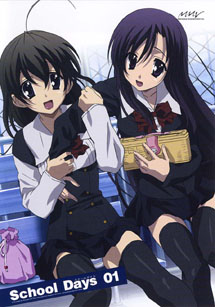 W
WThe School Days anime television series, based on the visual novel of the same name, was produced by TNK as a twelve-episode television series and two direct-to-video (OVA) releases. With the exception of the latter releases, the story, much like the game, follows the life of Makoto Itou, a first-year high school student who becomes the ambivalent love-interest of several girls during his second term, and the effects this has on himself and his relationships.
 W
WShake It Up is an American sitcom that originally aired on Disney Channel from November 7, 2010, to November 10, 2013. Created by Chris Thompson and starring Bella Thorne and Zendaya, the show follows the adventures of CeCe Jones and Rocky Blue (Zendaya) as they star as background dancers on a local show, Shake It Up Chicago. It also chronicles their misadventures on and off-set and their troubles and rising social status at school. Davis Cleveland, Roshon Fegan, Adam Irigoyen, Kenton Duty, and Caroline Sunshine also are other main cast members in the series. The show's original concept was for Disney to create a female buddy comedy with a dance aspect.
 W
WShow Dogs is a 2018 American buddy cop comedy film directed by Raja Gosnell and written by Max Botkin and Marc Hyman. It stars Will Arnett, Chris "Ludacris" Bridges, Natasha Lyonne, Jordin Sparks, Gabriel Iglesias, Shaquille O'Neal, Omar Chaparro, and Stanley Tucci. The film follows a Rottweiler police dog and his human partner who go undercover at a prestigious dog show to stop an animal smuggling activity. The film was released in the United States on May 18, 2018, to negative reviews from critics.
 W
WSouth Park: The Stick of Truth is a 2014 role-playing video game developed by Obsidian Entertainment in collaboration with South Park Digital Studios and published by Ubisoft. Based on the American adult animated television series South Park, the game follows the New Kid, who has moved to the eponymous town and becomes involved in an epic role-play fantasy war involving humans, wizards, and elves, who are fighting for control of the all-powerful Stick of Truth. Their game quickly escalates out of control, bringing them into conflict with aliens, Nazi zombies, and gnomes, threatening the entire town with destruction.
 W
WSpring, Summer, Fall, Winter... and Spring is a 2003 South Korean film directed by Kim Ki-duk about a Buddhist monastery that floats on a lake in a pristine forest. The story is about the life of a Buddhist monk as he passes through the seasons of his life, from childhood to old age.
 W
WThe Story of Little Black Sambo is a children's book written and illustrated by Scottish author Helen Bannerman and published by Grant Richards in October 1899. As one in a series of small-format books called The Dumpy Books for Children, the story was popular for more than half a century.
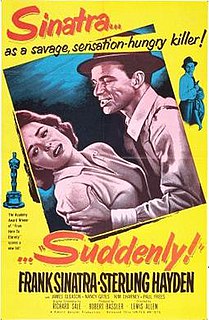 W
WSuddenly is a 1954 American noir crime film directed by Lewis Allen with a screenplay written by Richard Sale. The drama stars Frank Sinatra and Sterling Hayden, and features James Gleason and Nancy Gates.
 W
WThree Little Pigs is an animated short film released on May 25, 1933 by United Artists, produced by Walt Disney and directed by Burt Gillett. Based on a fable of the same name, the Silly Symphony won the 1934 Academy Award for Best Animated Short Film of 1933. The short cost $22,000 and grossed $250,000.
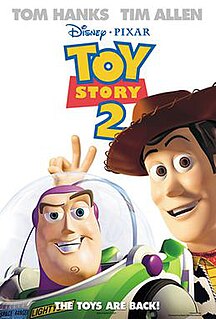 W
WToy Story 2 is a 1999 American computer-animated comedy film directed by John Lasseter and produced by Pixar Animation Studios for Walt Disney Pictures. It is the second installment in the Toy Story franchise and the sequel to Toy Story (1995). In the film, Woody is stolen by a toy collector, prompting Buzz Lightyear and his friends to rescue him, but Woody is then tempted by the idea of immortality in a museum. Tom Hanks, Tim Allen, Don Rickles, Wallace Shawn, John Ratzenberger, Jim Varney, Annie Potts, R. Lee Ermey, John Morris, and Laurie Metcalf all reprise their character roles from the original film. The returning cast is joined by Joan Cusack, Kelsey Grammer, Estelle Harris, Wayne Knight, and Jodi Benson, who voice the new characters introduced in this film.
 W
WWe're Only in It for the Money is the third studio album by American rock band the Mothers of Invention, released on March 4, 1968 by Verve Records. As with the band's first two efforts, it is a concept album, and satirizes left- and right-wing politics, particularly the hippie subculture, as well as the Beatles' album Sgt. Pepper's Lonely Hearts Club Band. It was conceived as part of a project called No Commercial Potential, which produced three other albums: Lumpy Gravy, Cruising with Ruben & the Jets, and Uncle Meat.
Where's Wally? is a British series of children's puzzle books created by English illustrator Martin Handford. The books consist of a series of detailed double-page spread illustrations depicting dozens or more people doing a variety of amusing things at a given location. Readers are challenged to find a character named Wally hidden in the group.